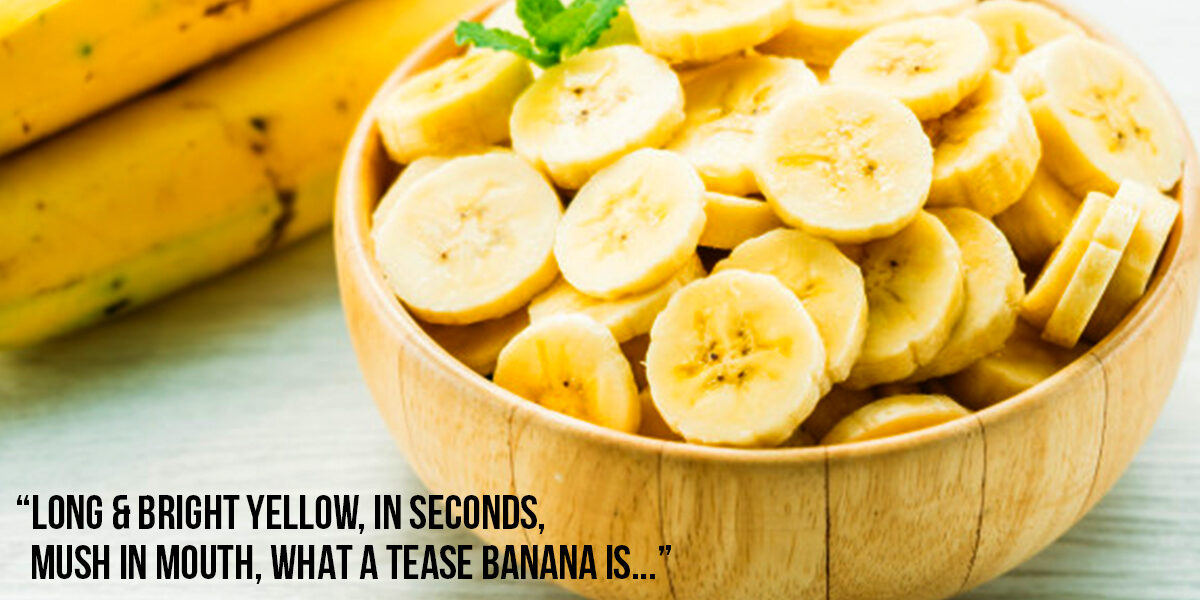Bananas are one of the favorite fruits among the people. The fruit is available in various sizes colors nut is usually elongated and curved, with soft flesh rich in starch and covered with rind which may be green, yellow, red etc in color.
Bananas are a rich source of potassium and fiber in form of pectin. They are also a good source of magnesium and vitamins C and B6. Bananas are known to be anti -inflammatory which means they are known to reduce swelling, they aid in weight loss, strengthen the nervous system and help with production of white blood cells, bananas are also high in anti-oxidants.
However, like with all things there are some stigmas connected with bananas. Some people consider banana as a healthy fruit while some avoid it completely. Some claims state that bananas cause weight gain and constipation.
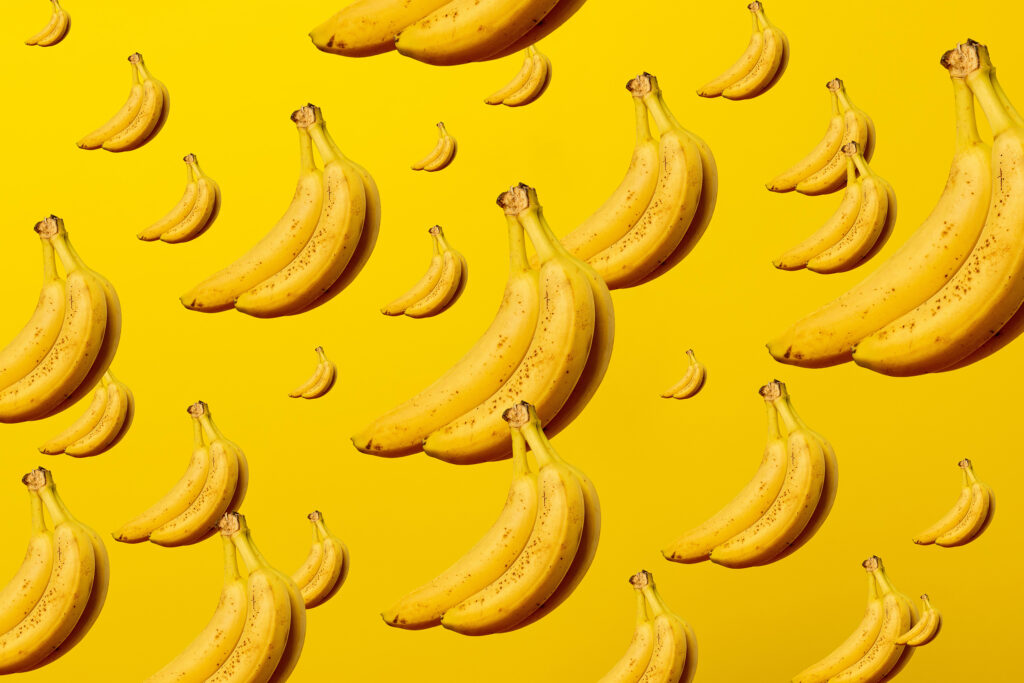
Types of banana
- Banana (Cavendish) – This is the most widely available and classified as “dessert banana” this is mildly sweet when ripe. It is covered with green rind when raw but upon ripening turns into golden yellow color.
The following are other banana varieties less commonly available in the world around
- Plantain (Green Banana) – This type of banana is often used for cooking it is larger, starchier and less sweet than dessert banana.
- Red Banana – This type of banana is shorter than the classic dessert banana. A ripe red banana will be creamy and often sweeter than classic dessert bananas.
- Lady Finger – They are thinner and shorter than the classic banana they are sweeter and eaten raw.
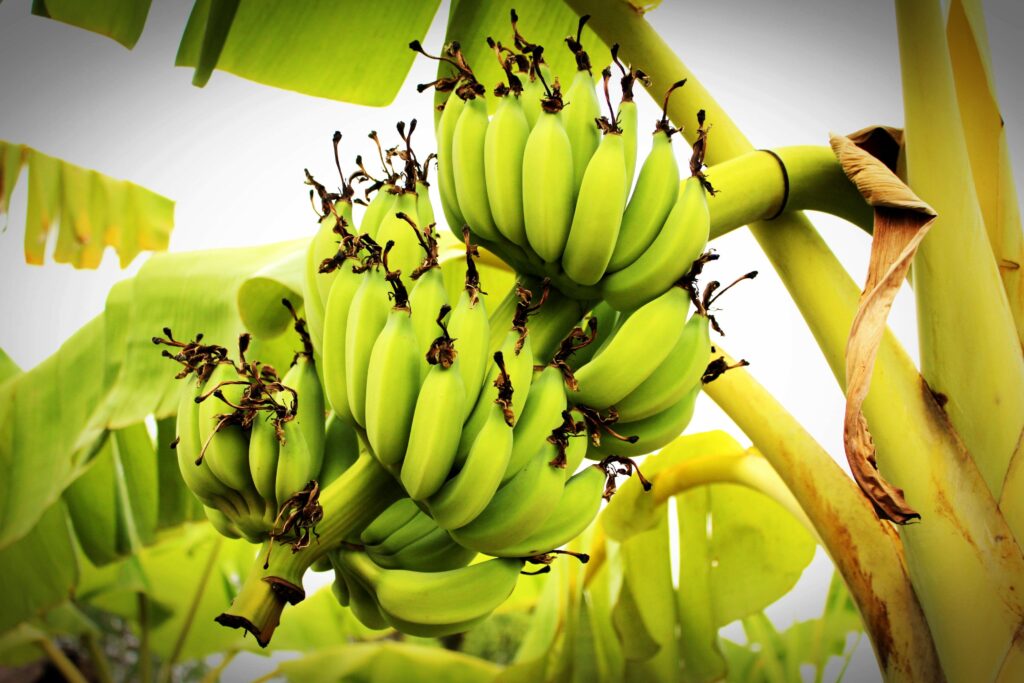
Nutrition facts
The nutrition facts for 1 medium-sized banana (100 grams) are:
- Calories: 89
- Water: 75%
- Protein: 1.1 grams
- Carbs: 22.8 grams
- Sugar: 12.2 grams
- Fiber: 2.6 grams
- Fat: 0.3 grams
Carbs
Banana are a rich source of carbs which is form of resistant starch in the bananas.
Fibers
Banana are also a good source of water soluble fiber called pectin. As banana ripens the amount of pectin increases and so they turn soft as they age. Both pectin and resistant starch moderate the rise in blood sugar after a meal.
Vitamins and minerals
Bananas are a good source of several vitamins and minerals like potassium, vitamin B6, and vitamin C.
- Potassium. Bananas are a good source of potassium. A diet high in potassium can lower blood pressure.
- Vitamin B6. Bananas are high in vitamin B6. One medium-sized banana can provide up to 33% of the Daily Value (DV) of this vitamin.
- Vitamin C. Like most fruit, bananas are a good source of vitamin C.
Health benefits
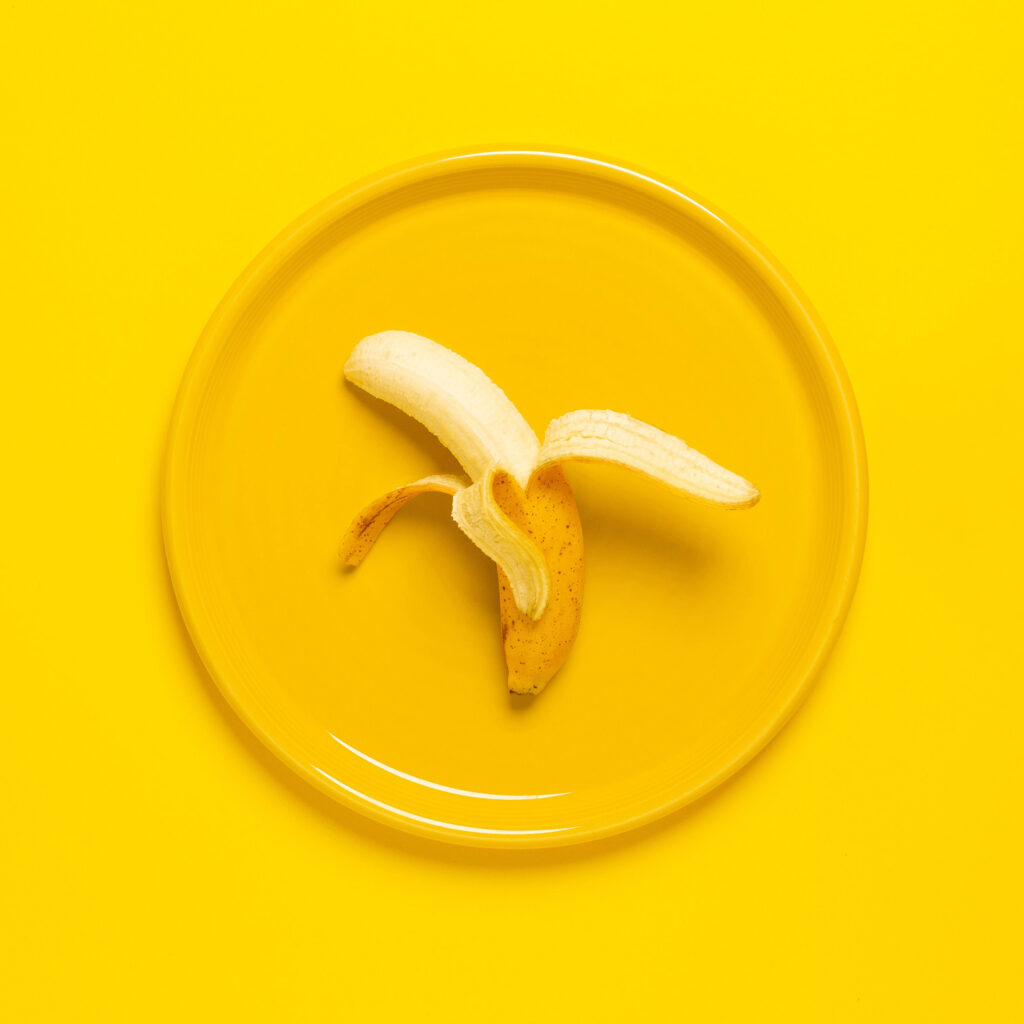
Heart health
Bananas are good for the heart. Bananas have high potassium and low sodium content which help protect your heart against high blood pressure.
Depression and mood
Bananas can be helpful in overcoming depression because of high levels of tryptophan which is converted in serotonin which is a mood-elevating neurotransmitter. Apart from that Vitamin b6 in bananas help you sleep well and magnesium in bananas relaxes muscles.
Digestion and weight loss
Bananas are high in fiber, one banana provides roughly 10 percent of daily fiber requirement. Vitamin B6 in bananas also help protect against Type 2 diabetes and aid in weight loss.
Resistant starch found in bananas increases the production of fatty acids in the gut, which are required for better gut health.
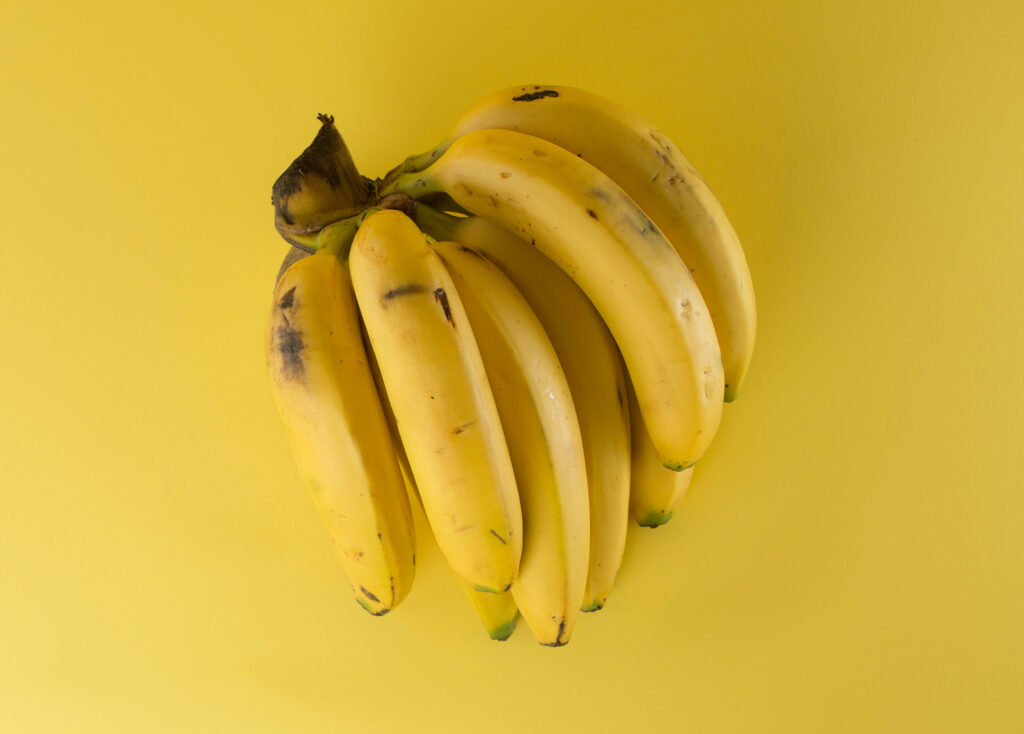
Exercise
Bananas are a great source for replenishing energy and electrolytes. Banana being an anti-oxidant improved athletes anti-oxidant level in the body resulting in less oxidative stress and improving the performance of the athlete.
Vision
Bananas contain vitamin A which is essential for a good vision and also helps improving night vision.
Cancer
Researches have proved that consumption of bananas in moderate amount help to protect the body against kidney cancer. Women eating four to six bananas a week can reduce their risk of developing kidney cancer.
Pregnancy
Bananas help prevent against gestational diabetes. Lack of sleep during pregnancy can contribute to gestational diabetes. But the magnesium and tryptophan in bananas can help ensure a good night’s rest.
Health risks
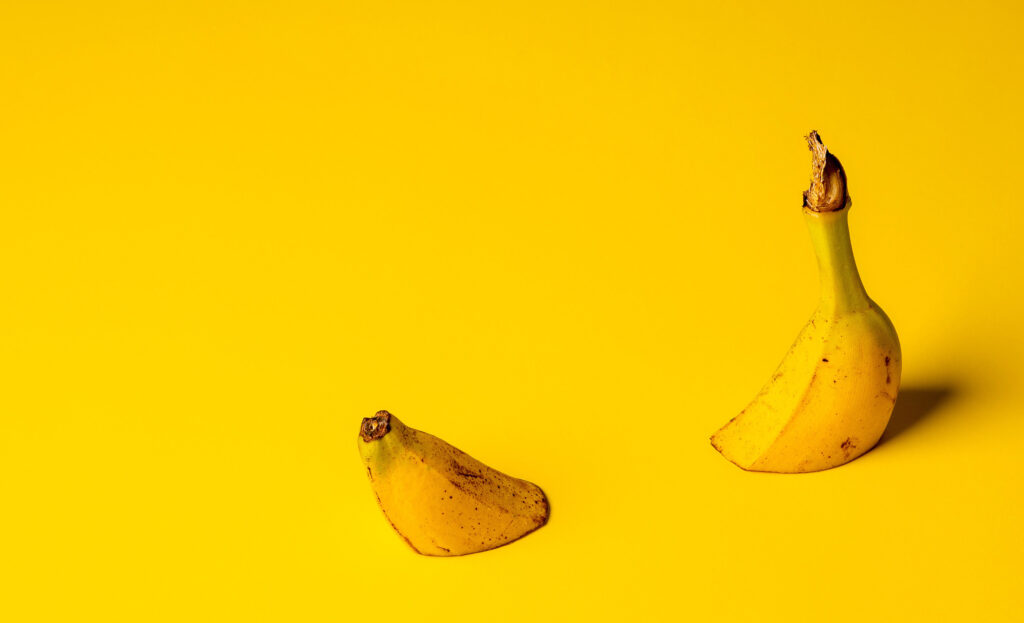
Anything in excess is always a problem same with bananas in moderation they are good for body but in excess they can cause sleepiness and headaches. Excess of banana consumption may also lead to elevated levels of minerals and vitamins in the body.
The University of Maryland Medical Center reported that potassium over-consumption can lead to hyperkalaemia, which is characterized by muscle weakness, temporary paralysis and an irregular heartbeat.
Banana peels: edible or poisonous?
The only potential risk associated with banana peels is accidentally slipping on it. Banana peels are edible and packed with nutrients. They contain high amount of vitamin B6 and B12 and as well as good amounts of magnesium and potassium. They also contain some amounts of fiber and protein.
Banana peels are eaten in many parts of the world. However, it is important to carefully wash a banana peel before eating it due to the risk of pesticides sprayed. Banana peels are often served boiled or fried. They can also be eaten raw or put in a blender with other fruits or in shakes.
So in the end all I wana say is dont be scared of eating bananas. But also dont throw the peel away after eating someone might slip on it.


